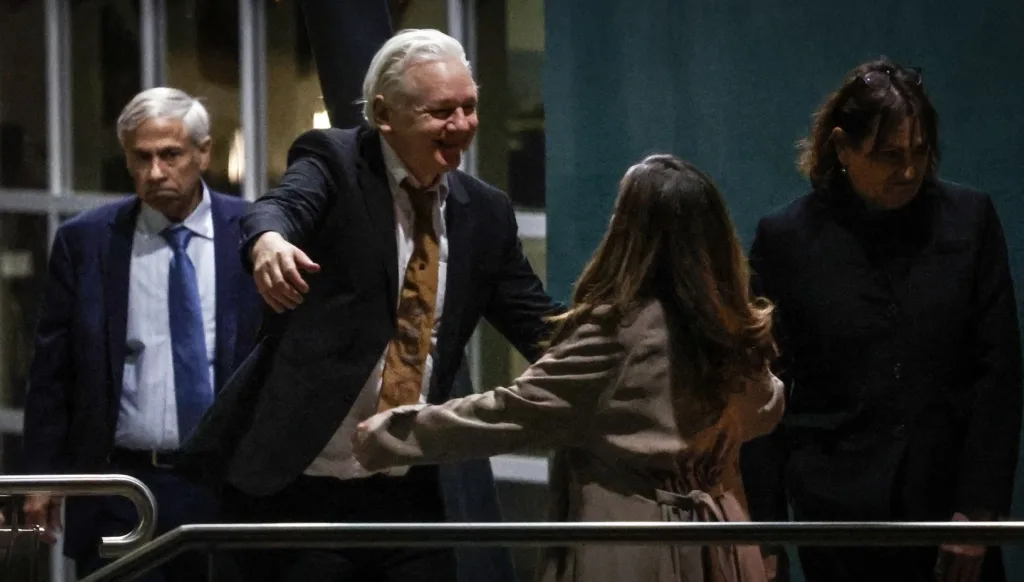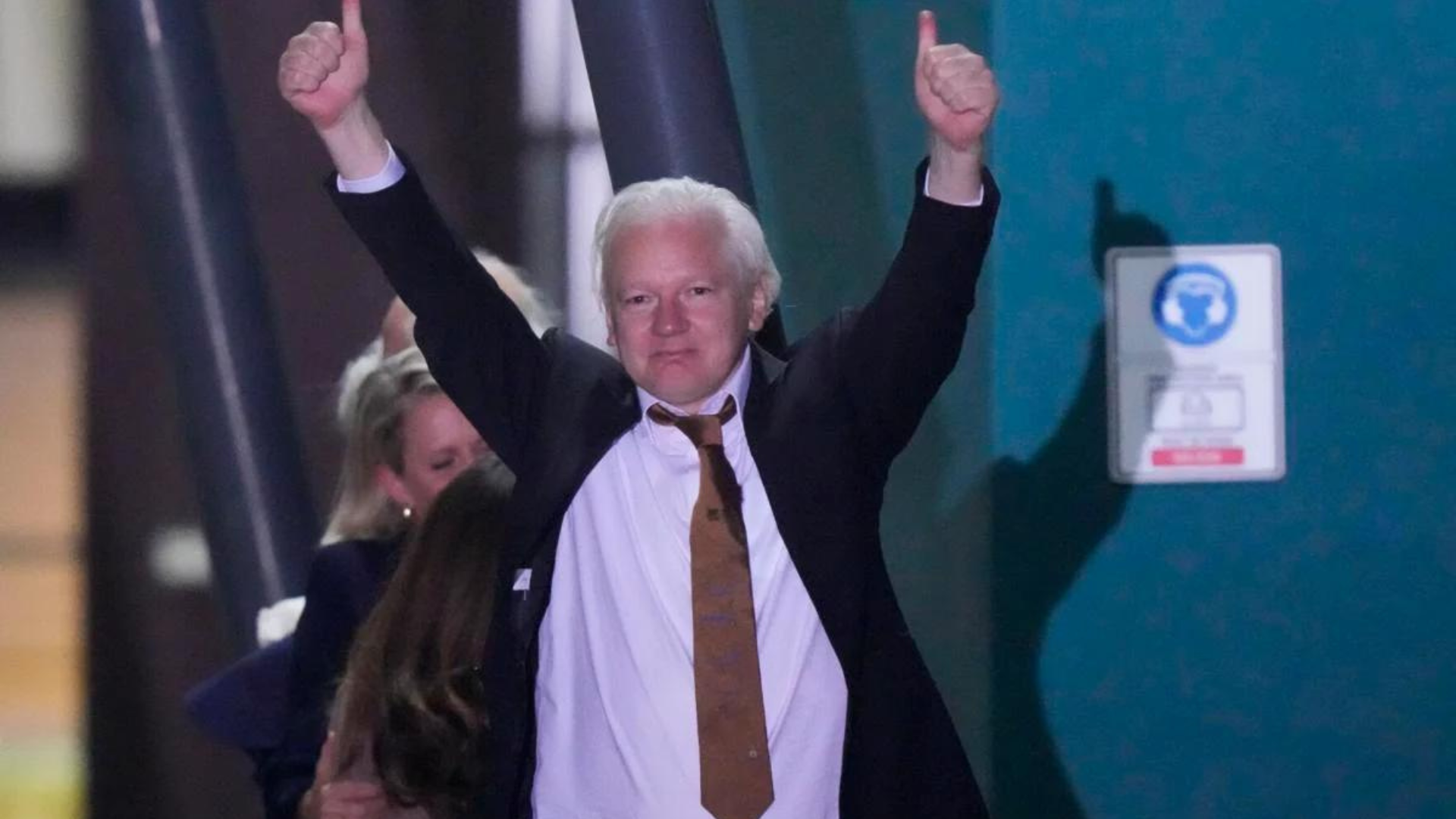Julian Assange has spent his first evening home in Australia as a free man after nearly 15 years of jail cells and embassy walls.
Assange has been a fugitive since his organisation WikiLeaks published classified United States military footage it alleged showed the killing of Iraqi civilians and two Reuters journalists by US forces.
For seven years he was stuck in Ecuador’s embassy in London, dodging an extradition order to the US over the leaks, until 2019 when police entered the embassy and detained Assange, placing him in jail where he remained until just days ago.

Since 2012 he has fought attempted extraditions and later charges of violating the US Espionage Act — which carried a maximum penalty of 175 years’ prison.
On Wednesday, June 26 this year, Assange finally settled a plea deal with the US, pleading guilty to one charge of conspiracy to commit espionage in return for a “time already served” sentence.
Landing in Canberra, Australia on Wednesday night, Assange rushed into the arms of his wife and mother of their two children, Stella Assange.
Ms Assange told media he was grateful to all who had supported him, but he was tired, and asked the family be given privacy.
“Julian needs time to recover, to get used to freedom,” Ms Assange said. “Freedom comes slowly, and I want Julian to have that space to rediscover freedom slowly, and quickly.”
Australia’s Prime Minister Anthony Albanese also spoke with Assange over the phone and welcomed him home, saying “I am very pleased that this saga is over.”
Source: ABC News.
